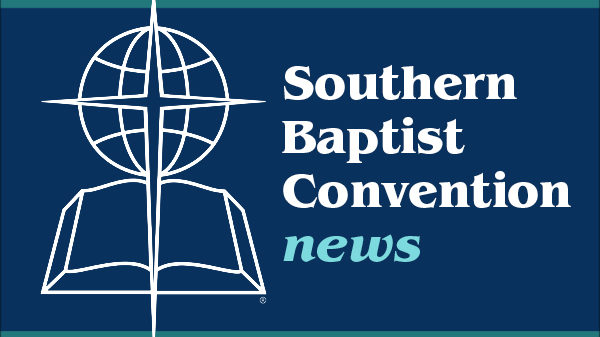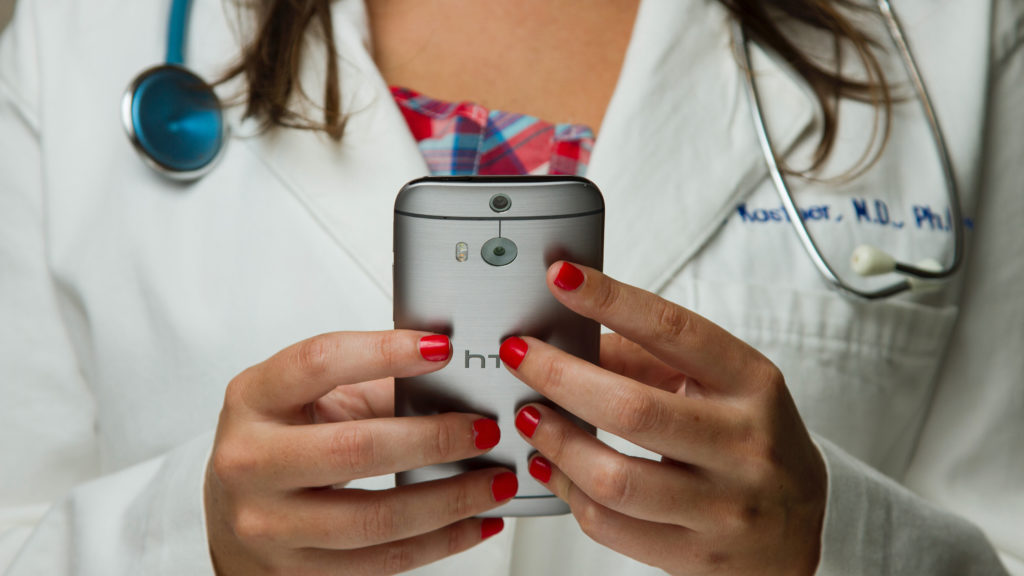With the COVID-19 pandemic continuing its rampage throughout the U.S., Southern Baptists’ national entities have focused on maintaining employee health and safety while also remaining committed to their mission.
International Mission Board
International Mission Board field and senior leadership began evaluating the effects of COVID-19 on field personnel and home-office staff in late January 2020, and IMB formed a Coronavirus Task Force in February. In addition to any transitions which may have affected field personnel in their many locations around the world, IMB directed home-office staff in Richmond, Virginia, to temporarily work from home in late spring.
In April, a Return-to-Workplace Task Force was established to inform any decisions regarding home-office staff as well as training that would affect field personnel, explained Julie McGowan, IMB associate vice president, communications/public relations.
During IMB’s first work-from-home directive, IMB equipped its facilities to provide for increased health consideration, including installing automatic sliding/swinging doors, automatic flushometers, hands-free soap dispensers, hands-free faucets; and posting ample signage reminding staff to wear masks and maintain a six-foot distance from one another. Facilities are now outfitted for maximized health considerations, McGowan said.
The first return-to-workplace effort took a phased approach, where IMB directors returned to the offices first, followed by staggered groups of additional staff over subsequent weeks.
IMB leaders and the Return-to-Workplace Task Force continue to monitor public health advisories regarding COVID-19.
“We thank God for leaders throughout our organization who consistently approach these challenging issues with a foundation of concerted prayer and hours of research in their areas of expertise,” said McGowan.
With holiday travel considerations in mind, IMB leaders issued a new temporary work-from-home directive beginning Nov. 30, anticipated to go through Jan. 8, 2021. Based on stricter health directives initiated recently by Virginia’s governor, IMB leaders announced Dec. 16 that the new return-to-workplace date for home-office staff is Feb. 1, 2021.
“The Return-to-Workplace Task Force is committed to continuing evaluation of local, state and federal factors and directives to make the wisest decisions possible for the health and safety of IMB personnel while also remaining committed to our mission,” said McGowan.
During the current work-from-home directive, IMB facilities remain open only for essential staff, such as security officers, housekeeping, facilities, distribution and reprographics, she said. When other staff’s work responsibilities require them to enter IMB facilities, they must request permission to enter from their vice president; complete a digital health screening, which includes a temperature-check and questions about travel and exposure; and commit to wearing a mask and maintaining social distancing.
Under Virginia’s Temporary Emergency Standard, some IMB staff, including medical clinic, member care, facilities, maintenance, security, housekeeping, distribution services and health screeners, must always wear masks or face coverings when they are in the presence of others, regardless of the duration of their interaction or the social distancing rule. Individuals do not have to wear a mask or face covering when they are alone at their desk or in their office; or during meetings, if employees remain more than six feet apart.
“With IMB’s primary mission to serve Southern Baptists in carrying out the Great Commission to make disciples of all nations, we are continuing the training and deployment of new missionaries as we are able, following strict health parameters to ensure the safety of all participants. Those parameters include pre-testing, quarantine upon arrival, testing during training, and continued health monitoring throughout.
“We are grateful for the ways we have seen God continue to use Southern Baptist missionaries to spread His love and hope throughout this pandemic, and for the creative ways missionaries and their national partners are finding to continue their work,” said McGowan.
McGowan described “a tremendous spirit of unity and discernment among our task force members as we have wrestled with such difficult decisions, and we anticipate the same spirit as we continue to navigate this global pandemic.”
North American Mission Board
During the initial spring surge of COVID-19, North American Mission Board team members primarily worked remotely, returning to the office in June. Even after the initial return to the office, employees who were considered at-risk or live with at-risk family members were allowed to continue to work remotely. From Thanksgiving through the Christmas holidays, all team members are once again working remotely “in an effort to try to minimize exposure for everyone as cases in Georgia rise,” said Mike Ebert, NAMB’s executive director of public relations. After the first of the year, NAMB employees will return to working in the building with at-risk staff working remotely.
“Throughout, we have allowed flexibility for case-by-case situations. In the building we have measures in place to accommodate and encourage social distancing, and we have increased cleaning and disinfecting throughout the building. We have strict limits on the number of people allowed in meeting rooms. Masks are strongly encouraged,” said Ebert.
Half of NAMB’s staff are field-based year-round, with about 140 working in the Alpharetta, Georgia, building.
“Fortunately we had everything in place to allow a seamless transition to remote working. Our priority has been on serving pastors and churches well and caring for our missionaries. We have been able to do that as we also keep staff safe,” Ebert explained.
GuideStone
In Dallas, GuideStone is using a hybrid model for its office staff, with most employees working from home some days and working in the office on other days.
“When we relocated to our current offices in 2018, we were able to invest in technology that gave us flexibility on when and how we worked. What that means is we can serve our participants, collaborate with our colleagues and handle our other day-to-day responsibilities seamlessly from anywhere with an Internet connection,” said Roy Hayhurst, GuideStone’s director of denominational and public relations.
Due to the holidays, more people are working exclusively from home right now, he said, but as the new year rolls around, most GuideStone personnel will be in the office at least two to three days each week. GuideStone is “working to accommodate” the needs of employees who have health concerns or who live with family members who have health concerns, he said.
Still, he said, “We believe that face-to-face communication is imperative for team-building, developing a best-in-class working environment and collaborating to best serve our participants. It’s also important for efficiency: It’s hard to beat being able to walk a couple of doors over, or down the stairs to another department and ask a question or bounce ideas off each other. Our future involves in-person work being a key component of the way we do the business of ministry.”
As to protocols, GuideStone employees are wearing masks when in public areas of the office building, including the parking garage, but not while seated at their own desks. Meeting rooms have limited occupancies to allow for maintaining physical distancing. Almost every conference room has virtual-meeting capabilities, so on-site staff can meet together in a room and offsite staff can join remotely. Elevators have limited occupancy; employees and visitors have daily temperature checks before they report to work; high-touch surfaces are cleaned multiple times daily, and hand-sanitizing stations are available throughout the building.
“Employee health and safety is always a top concern for us,” Hayhurst said.
LifeWay
LifeWay’s Nashville-based employees moved to fully remote work in March as the city implemented a number of restrictions due to COVID-19.
“Before LifeWay moved to our current building, we saw the need to support an increasingly mobile workforce. We’ve had a robust work-from-anywhere strategy for the last few years, which positioned us well for Nashville’s safer at home orders put in place in March.
“The health and wellbeing of LifeWay employees is our primary concern. From the beginning of the crisis, our approach has been to be proactive in planning for any potential concerns that may arise and ensure employees are taking the proper precautions to help prevent exposure and the spread of the virus to coworkers,” said Connia Nelson, LifeWay’s chief human resources officer.
While most of LifeWay’s employees can work remotely, employees at LifeWay’s distribution center in Lebanon, Tennessee, have continued to work through the pandemic following guidelines from the Centers for Disease Control and local health authorities.
“Our distribution center team has served through the pandemic, taking extra safety precautions but working tirelessly to make sure churches have the resources they need to continue ministry during this challenging season,” explained Ben Mandrell, LifeWay’s president and CEO.
LifeWay has been following Nashville’s four-phased re-opening plan, indicating that employees who can work remotely should continue to do so. Employees can access the building to pick up needed resources or attend strategic meetings. Currently, meetings are limited to eight or fewer people, and in-person attendance is voluntary. Employees who come to the building are required to wear a mask and follow COVID-19 safety guidelines.
“We’ve been looking at options for our headquarters since last summer, well before anyone knew that COVID was on the horizon. One of the first questions I asked when I took this role was ‘What should we do with this building?’ A study completed last year showed we were using the building at only 60% occupancy on a daily basis. It makes sense for us to do all we can to be the best stewards of our resources, including our corporate office building,” said Mandrell.
“As restrictions due to COVID-19 pushed us to a fully remote experience, we had to ask, ‘What’s the most strategic use of a building?’ Every decision we make — even decisions about where and how we work — needs to be based on our mission and how we can best serve our customers.
“The future of work for LifeWay will likely mean a healthy blend of strategic meetings and team collaboration, as well as the flexibility of working from home. Like other companies are doing as a result of COVID, we’re re-imagining the corporate office for the future of work. We are moving away from the idea of a ‘headquarters’ to a fully mobile and agile workforce that intentionally gathers to build strong relationships, celebrate what God is doing, and share ideas,” he said.
Woman’s Missionary Union
Woman’s Missionary Union leaders report that their organization, headquartered in Birmingham, has closely followed guidelines from the CDC and government officials related to the pandemic.
In March, all staff who could perform their work responsibilities remotely did so, and all meetings were held virtually. A small percentage of staff members were approved to be in the building at that time, as their work required them to be on-site.
As the curve began to flatten somewhat over the summer, staff were given the option to work from the office or remotely, but were required to gather in-person at WMU for a weekly meeting with their immediate team members.
When the number of cases began to increase again in November, all in-person meetings were suspended and were held virtually. Also in November, employees began having their temperature taken upon arrival. Any person with with a temperature of 100.0 degrees or higher could not remain in the building.
Currently, staff members who do not have to be on-site to perform their duties still have the option to work from the office or remotely; approximately 25% are working from the office.
Employees in the building must wear face coverings except when at their individual work stations or while eating, and they must also maintain social distancing guidelines. Staircases in the lobby are marked as one-way only. Elevator occupancy is limited to one person, and bathroom occupancy is limited to two people.
“We continue to monitor the overall situation and will adapt as needed. Our top priorities are the welfare of our staff and stakeholders as well as providing excellent service and support to missions leaders and advocates involved in WMU’s missions discipleship groups, leadership development and compassion ministries,” said Julie Walters, WMU communications specialist.
WMU also continues “to explore new and different ways to engage others in missions, especially with many churches still not gathering in-person or suspending certain activities,” she said, which includes doing much more digitally.






Share with others: